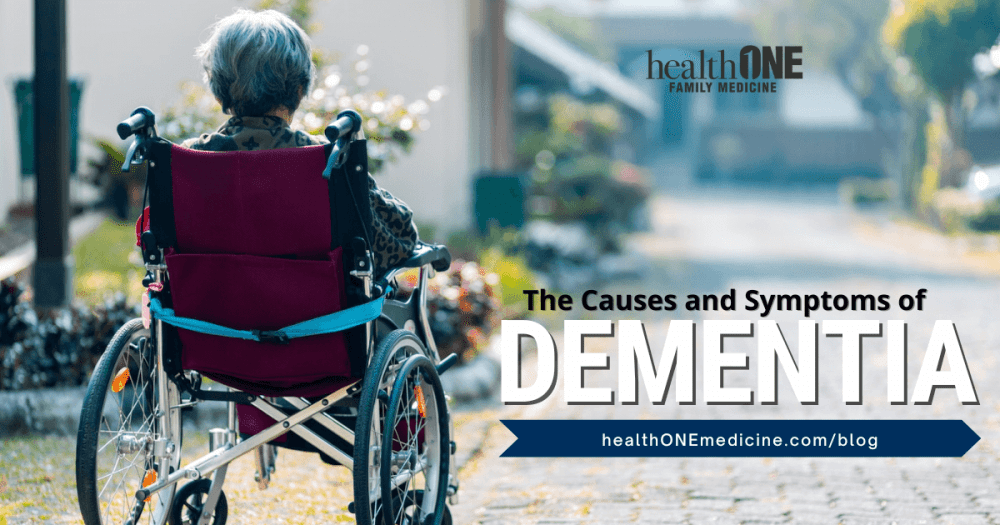Dementia is a neurocognitive disorder caused by a loss of memory, ability to think, attention, and logical reasoning, among other mental skills. While certain symptoms of dementia stay consistent, the changes in the brain develop over time in most patients and become severe enough to interfere with day-to-day functioning.
Dementia is most common in the senior population. About 5% to 8% of adults over age 65 have some form of dementia. This percentage doubles every five years after the age of 65. However, dementia is not a part of the natural aging process. Many people live well up to the age of 90 or beyond without exhibiting any signs of dementia.
Causes of Dementia
Dementia is caused by damage to the brain cells that affect the ability of the cells to communicate with one another. When brain cells are unable to communicate, it impacts your thinking, feeling, and behavioral capabilities. The brain has different regions, each responsible for different functions. When cells in a region get damaged, that particular region loses its ability to function normally.
Different types of dementia are linked to types of brain cell damage. For example, Alzheimer\’s disease is a type of dementia where high levels of proteins in the brain make it difficult for brain cells to communicate and stay healthy. The hippocampus region in the brain is the center of memory and learning, and the cells in this region are often the first to be damaged. Hence, memory loss is one of the earliest signs of Alzheimer\’s.
The majority of the changes that occur in the brain and lead to dementia are permanent. They worsen with time. However, if your thinking and memory problems are caused by medications, depression, excess alcohol use, thyroid problems, and vitamin deficiencies, they may improve when your condition is addressed.
Symptoms of Dementia
Symptoms of dementia may vary depending on the cause of the condition, but the most common signs include:
- Memory loss
- Anxiety and depression
- Personality changes
- Paranoia
- Difficulty communicating
- Difficulty with visual and spatial abilities
- Difficulty reasoning
- Difficulty solving problems
- Difficulty handling complex tasks
- Difficulty with planning and organizing
- Difficulty with coordination and motor functions
- Agitation
- Confusion
- Hallucinations
- Inappropriate behavior
The 3 Stages of Dementia
According to the World Health Organization, dementia can be divided into three stages: early, middle, and late:
Early Stage
At the early stage, it may not seem like a person has dementia. However, they may:
- Become forgetful
- Lose track of time
- Feel lost in familiar locations
Middle Stage
At the middle stage, the symptoms of dementia become more noticeable. The person might:
- Start forgetting names and recent events
- Feel lost even at home
- Experience difficulty communicating
- Undergo behavioral changes
- Repeatedly ask questions
- Require help with personal care
Late Stage
At the late stage, a person needs full-time assistance because the symptoms become more severe. The person may:
- Be unaware of time
- Be unaware of where they are
- Have difficulty recognizing their loved ones
- Find it hard to walk
- Experience aggression
Dementia Counseling at irvingprimarycare.com in Irving, TX
Treating dementia depends on the cause of the disorder. Only 20% of the causes of dementia are revocable. In most cases of progressive dementia such as Alzheimer\’s, there is no cure. The treatment solely focuses on managing the symptoms of dementia through medications, therapy, or lifestyle changes.
If you or your loved one is experiencing early signs of dementia, please visit irvingprimarycare.com today. Our licensed and skilled healthcare providers will conduct a thorough examination along with cognitive testing to diagnose your condition. To make an appointment with a healthcare provider at irvingprimarycare.com, visit https://www.healthonemedicine.com/ or call (469)262-5762.


Very interesting info!Perfect just what I was searching
for!Raise blog range